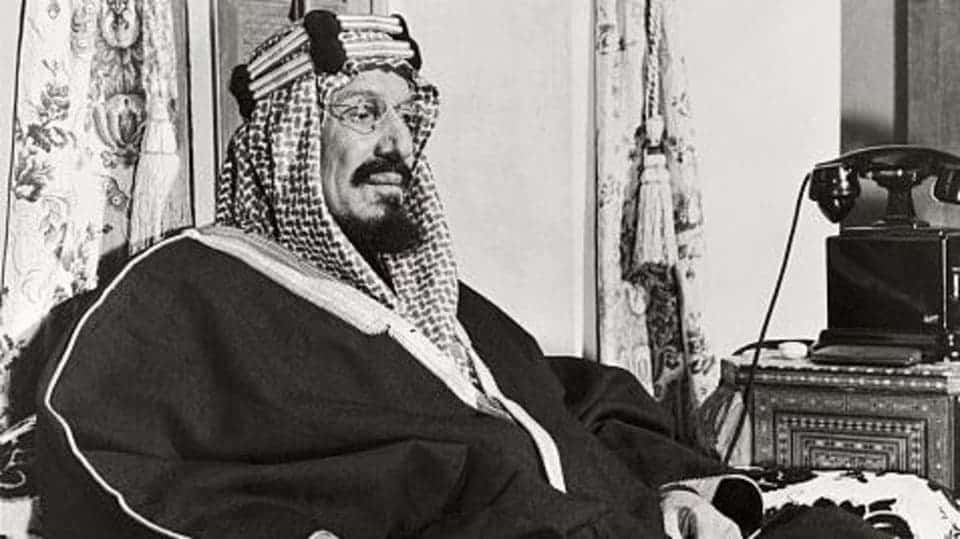
In the annals of Saudi Arabian history, one figure stands as the visionary architect of the modern Kingdom – King Abdulaziz Al Saud, affectionately known as Ibn Saud. His legacy is indelibly etched into the very foundations of Saudi Arabia, and this blog endeavors to explore the remarkable life, achievements, and enduring impact of the founder of the Kingdom.
Founding the First Saudi State:
Born in Riyadh in 1875, Abdulaziz Al Saud was thrust into the complex tapestry of Arabian tribal politics from a young age. Following in the footsteps of his father, Abdulaziz embarked on a journey to reunify the fragmented Arabian Peninsula under the banner of Wahhabism, a puritanical form of Islam. Through a series of strategic alliances and military campaigns, he successfully captured Riyadh in 1902, marking the foundation of the first Saudi state.
Tribal Diplomacy and Strategic Alliances:
King Abdulaziz was a master tactician in the intricate world of tribal politics. Recognizing the necessity of forming alliances, he skillfully navigated the tribal landscape, forming partnerships that would prove crucial in his quest for unification. The most significant of these alliances was forged with the religious leader, Sheikh Muhammad ibn Abd al-Wahhab, giving rise to the potent combination of political leadership and religious authority.
Conquest and Unification:
The decades that followed were marked by a relentless pursuit of territorial expansion and unification. King Abdulaziz, alongside his loyal band of warriors known as the Ikhwan, conquered key cities and regions, including the holy cities of Mecca and Medina. The unification of disparate tribes into a single kingdom, officially declared in 1932, marked the establishment of modern Saudi Arabia.
Wahhabism as the Bedrock:
Central to King Abdulaziz’s vision was the establishment of Wahhabism as the state’s guiding ideology. This puritanical interpretation of Islam not only provided the cultural and religious identity of the Kingdom but also became a source of legitimacy for the ruling House of Saud.
Legacy and Enduring Impact:
King Abdulaziz Al Saud’s legacy extends far beyond the borders of Saudi Arabia. His strategic brilliance, commitment to the principles of Wahhabism, and unwavering leadership laid the groundwork for a nation that would play a pivotal role in regional and global affairs. His vision of a united and powerful Saudi Arabia, rooted in Islamic principles, continues to shape the nation’s identity and policies.
As we reflect on the life of King Abdulaziz Al Saud, we witness the profound impact of a leader whose strategic acumen and unyielding determination forged a nation from the disparate sands of the Arabian Peninsula. The founding monarch’s legacy endures in the very fabric of Saudi Arabia, serving as a guiding light for subsequent leaders and a testament to the transformative power of visionary leadership.
King Abdulaziz Al Saud: Architect of a Nation and Pioneer of Visionary Leadership
Consolidating Power and Governance:
King Abdulaziz faced the formidable task of transitioning from a tribal leader to a nation-state builder. After the formal establishment of Saudi Arabia in 1932, he focused on consolidating power and creating a governance structure that would serve the needs of a unified nation. This included the establishment of governmental institutions, legal frameworks, and administrative systems that would form the backbone of the emerging state.
Economic Challenges and Vision:
In the aftermath of World War II, King Abdulaziz confronted economic challenges as the global demand for oil increased. Recognizing the potential of the Kingdom’s vast oil reserves, he negotiated with international oil companies to develop the industry. This marked the beginning of Saudi Arabia’s economic transformation. King Abdulaziz’s foresight in leveraging oil resources laid the foundation for the country’s economic prosperity in the following decades.
Diplomacy and International Relations:
King Abdulaziz was not only a leader focused on domestic affairs but also an astute diplomat. He navigated the complexities of international relations, forming alliances with key players. Notably, during World War II, he established a strategic alliance with the United States, fostering a relationship that would endure and significantly impact global geopolitics.
Succession and Family Governance:
King Abdulaziz carefully managed the issue of succession, a critical aspect of ensuring stability in the Kingdom. His leadership extended beyond his lifetime as he established a system of family governance, whereby his sons assumed leadership roles. This practice of family rule has remained a defining characteristic of Saudi Arabian politics.
Educational Initiatives and Social Development:
Recognizing the importance of education in nation-building, King Abdulaziz implemented educational initiatives. These efforts laid the groundwork for future leaders and professionals, contributing to the intellectual and cultural development of the nation. Additionally, he initiated social development projects, including infrastructure and healthcare, to improve the quality of life for Saudi citizens.
Legacy and Reverence:
King Abdulaziz Al Saud’s legacy is one of unification, transformation, and visionary leadership. His ability to navigate complex tribal dynamics, establish a unified nation, and set Saudi Arabia on a trajectory of economic and social development has earned him enduring reverence. The House of Saud continues to draw inspiration from his leadership, and his legacy remains foundational to the Kingdom’s identity.
As we delve deeper into the legacy of King Abdulaziz Al Saud, we uncover a multifaceted leader whose influence extends across the realms of politics, economics, and diplomacy. His contributions to the establishment and early development of Saudi Arabia serve as an enduring testament to the resilience and sagacity of a leader whose vision continues to shape the destiny of the Kingdom.
Visit Saudi Arabia Destinations Now
Here are some of our Saudi Arabia private tours, offering you the opportunity to embark on a captivating journey through the Kingdom of Saudi Arabia. Immerse yourself in the rich history of Saudi Arabia as you explore ancient wonders in cities like Riyadh, Jeddah, and Mecca. Discover the archaeological marvels of Al-Ula, with its UNESCO-listed Madain Saleh, and stroll through the traditional streets of Al-Ula Old Town. Experience the highland haven of Abha, nestled in the Asir Province, where you can explore Asir National Park and the historic village of Habala. Take in the breathtaking views at Al-Soudah Park and witness the natural beauty that defines the diverse landscapes of this enchanting kingdom. Whether you’re drawn to the historical charm of Riyadh or the mountainous landscapes of Abha, our Saudi Arabia private tours promise “A Trip to Remember.”

4 Days Riyadh Heritage Tour Package
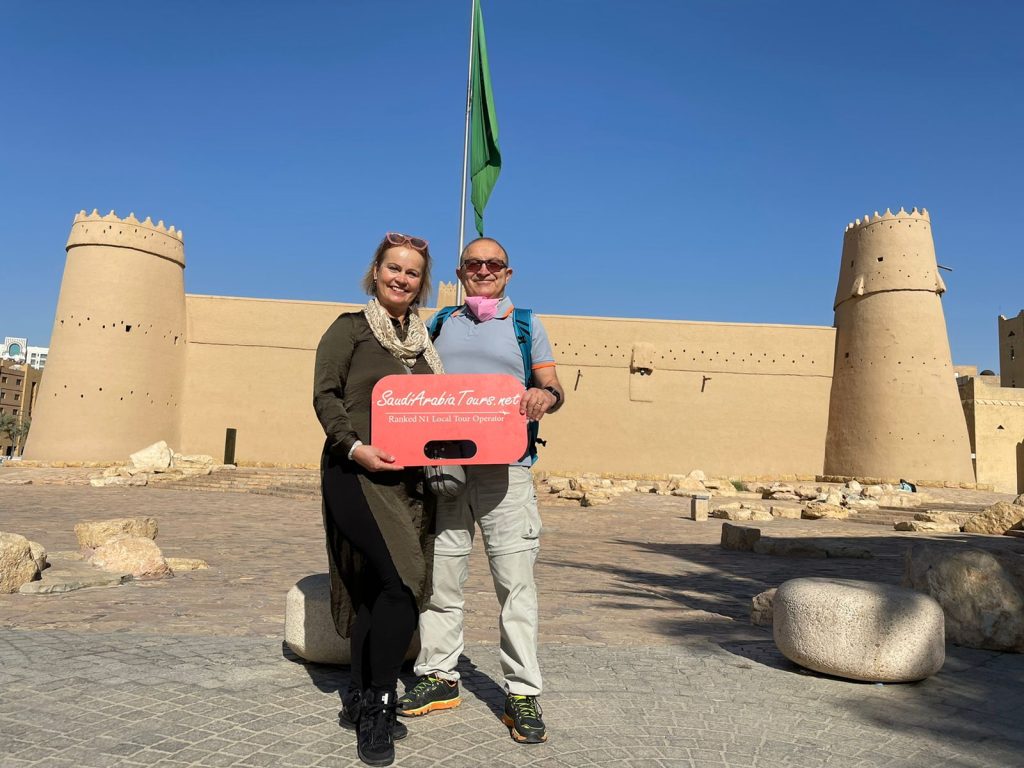

Saudi Arabia Explorer Riyadh, AlUla and Jeddah – 8 Days

Majestic Tour of Saudi Arabia – 10 Days
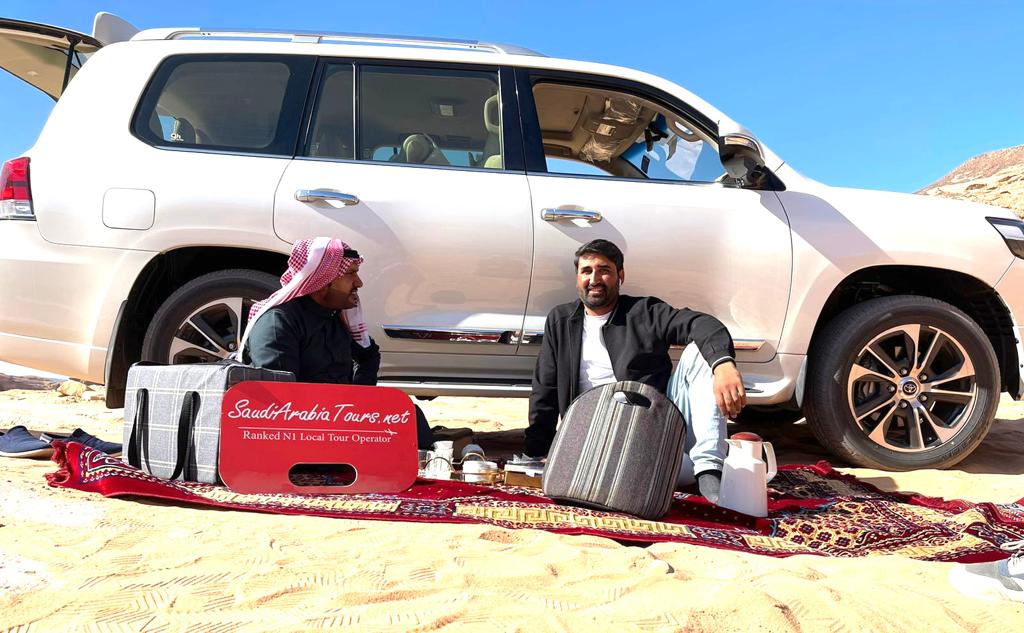
How Good are Saudi Arabia Tours?
Saudi Arabia Tours prides itself on being the best travel agency in Saudi Arabia as proven by our numerous positive reviews.
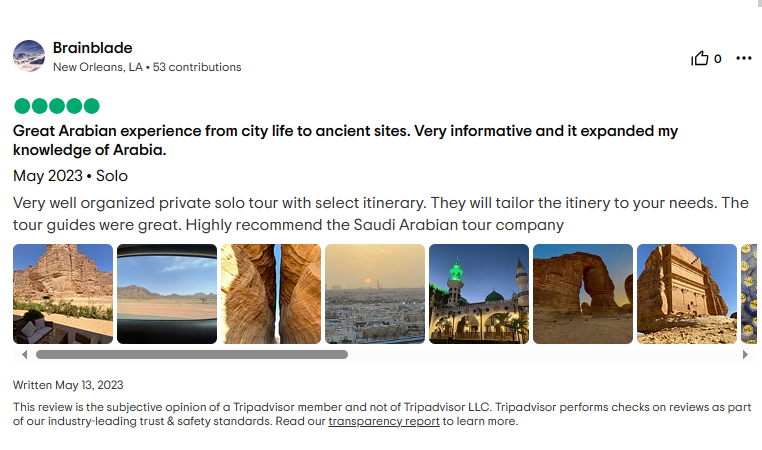
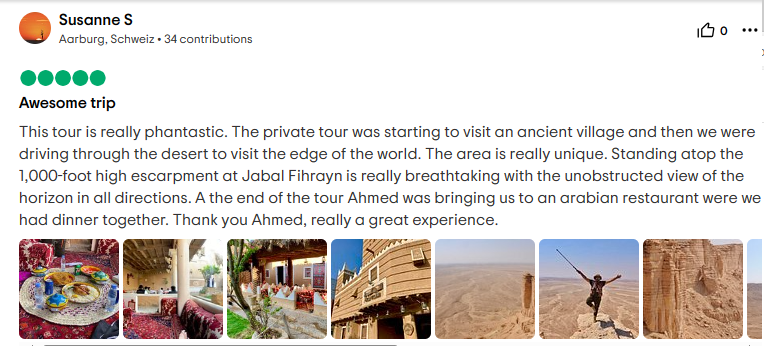

Frequently Asked Questions?
Is Saudi Arabia safe for tourists?
Tourists have been visiting Saudi Arabia and Saudi Arabians have a well-earned reputation for warmth and kindness toward visitors. Saudi Arabia cities are generally very safe, especially in areas where tourists frequent.
How to get a Saudi tourist visa?
Applying for a tourist visa to Saudi Arabia is easy. If you are from one of the 49 eligible countries, you can apply through the eVisa website. Holders of US, UK, or Schengen visas can apply for the visa upon arrival. Saudi Arabia is opening its doors to the world through its new tourist visa. Visitors will have the chance to discover and experience the warm hospitality of the Saudi people, the rich heritage, the vibrant culture, and Saudi Arabia’s diverse and breathtaking landscapes. The visa will be a one-year, multiple-entry visa, allowing tourists to spend up to 90 days in the country.
Are non-Muslims allowed in Saudi?
Non-Muslims can travel to all cities in Saudi Arabia except Medinah and Mekkah, Not allowed to non-Muslims to enter Mecca and Medinah.
Can I wear jeans in Saudi Arabia?
Both men and women are asked to dress modestly in public, avoiding tight-fitting clothing. Women should cover their shoulders and knees in public.
Contact us for more information on:
saudiarabiatours.net@gmail.com
Address: Head Office Olaya St, Riyadh 12213, Saudi Arabia.
If you are booking and taking the tour within 24 hours, or have an urgent request, call us on
Cell/whatsapp : +966558018938 For more info please visit Saudi Arabia Tours

